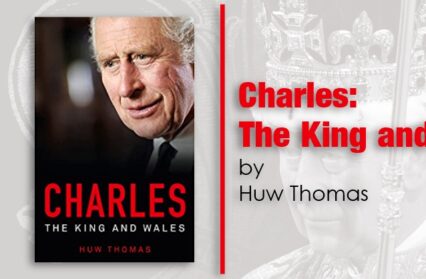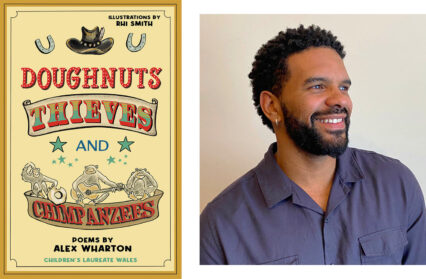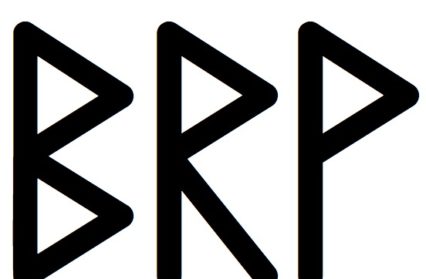As the dust settles after the coronation of King Charles III, Emma Schofield takes a look at, Charles: The King and Wales, a new book by Huw Thomas which explores the relationship between the new monarch and Wales.
Whether you’re hanging out the bunting, baking a coronation quiche, or planning a long bank holiday weekend in a pub to avoid swearing allegiance to an unelected head of state, it’s difficult to avoid noticing that a coronation is happening this weekend. These kind of events will always be peppered with controversies and debate; we’re British, a healthy dose of pageantry, underpinned by a lingering sense of confusion about what we’re doing and why, is one of the things we do best. What we really need at a time like this is something a bit more measured, removed from the polarisation of hysteria and frustration which will spill out over the next few days.
Enter Huw Thomas, who has drawn together interviews, memories and fact to produce a history of the relationship between the soon-to-be King and Wales. It’s a book which takes its time and really delves into the pivotal moments in Charles’ connection with Wales. There is a detailed chapter on the significance and controversy of his Investiture as Prince of Wales, alongside an assessment of Charles’ contribution to Wales in terms of business and finance. We are offered a glimpse at a man who has, over the decades, forged both a more formal support to Wales and a more personal warmth for it. Details such as Charles’ enthusiasm for the tradition of plygain, a service of Welsh Christmas carols which finds its origins in seventeenth century Wales, provide balance to the debate about a man who is so frequently judged on his public role, rather than his personal connection to Wales.
In spite of the warmth in these anecdotes, Thomas doesn’t shy away from the fact that the relationship between Charles and Wales has not always been an easy one. The King was infamously reluctant to come to Wales as a student, a position which only changed gradually as he began to learn more about both the country and the Welsh language. What Thomas also brings out, however, is a softer side to Charles. We see the future King presented as a figure who often found himself on the outskirts, a somewhat lonely figure who could never quite fully blend in with the communities he sought to immerse himself in.
Wales has, over the years, played its own role in that sense of isolation; often resisting and challenging Charles’ involvement in political and rural affairs within Wales. It’s an understandably complex relationship, but one which Thomas rightly notes also carries with it a good deal of affection. However rocky the road has been, Charles has found some way to move forward from the uncertain student who found himself studying at Aberystwyth to a man who has arguably brought business, events and support to Wales over the years.
As he makes his oath to serve the whole of the UK as its King this weekend, Wales will almost certainly be wondering what part our nation has to play in the future of the monarchy and the ongoing discussion about national identity. For Thomas, the answer is complex and perhaps lies more within the hands of William, the new Prince of Wales. Describing the decision to rapidly instil William as Prince of Wales as a way of “stifling debate about the subject”, Thomas pinpoints the sense of uncertainty and wariness which now characterises exchanges between Wales and the Royal Family.
Nonetheless, Thomas notes that a new era may be on the cards for the monarchy, one which challenges Charles and his philosophical and political views in ways that the late Queen never faced. Where Wales will sit within that balance is still not entirely clear; will the nation’s lengthy relationship with Charles command a certain level of acceptance of his tenure as King? Or will the nation which has never fully accepted him, be instrumental in demanding change for the future? It’s an interesting prospect and one that may best suit that old adage that only time will tell.
Charles: The King and Wales by Huw Thomas is available now, from Parthian Books.








